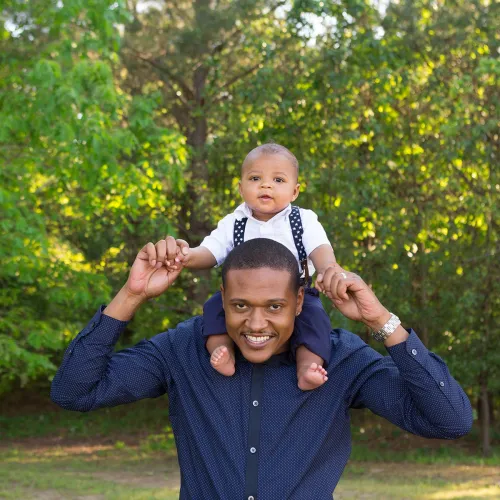What's the Role of a Certified Divorce Coach?

Article updated for OurFamilyWizard by Jennifer Warren Medwin, MS, CDC.
Getting divorced is an emotionally charged process that can be time-consuming and challenging. Many people overlook the impact feelings have on the divorce process and the importance of having the necessary professional support. It’s not uncommon for people to experience emotional fatigue from contemplating the dissolution of marriage, especially when there are children involved.
During this time, people find themselves plagued by intense feelings that are difficult to manage and can have a profound effect on their ability to think and act rationally—two skills that are invaluable when going through a divorce. Being overwhelmed by these powerful emotions leads to costly personal and financial mistakes in divorce, which have long-term consequences for all parties involved. That is one of the reasons that in 2013, the American Bar Association added Divorce Coaching to its list of alternative dispute resolution methods, defining it as “a flexible, goal-oriented process designed to support, motivate, and guide people going through divorce.”*
Together, divorce coaches work alongside the other members of a client’s professional team to provide the best possible outcomes regarding the dissolution of marriage.
Divorce coaches can walk clients through many of the non-legal practicalities of divorce, allowing Family Law attorneys to focus their efforts more efficiently and fully on the legal process. Accountants similarly benefit from the collaboration of divorce coaches who assist clients in gathering and organizing financial information, allowing them to devote their hours to the financial intricacies of the divorce rather than on record gathering.
But of course, the primary beneficiaries of a partnership with a divorce coach are the parents.
A Divorce Coach creates a nonjudgmental partnership
Coaches are able to provide an unbiased point of view, supporting parents as a voice of reason when emotions are raw.
Having a partner in managing the challenges of divorce—not only a family law attorney to handle the legal side of things or an accountant to help with financials—can help parents adapt to the stress of divorce rather than become overburdened by it. Complex conversations, such as developing a parenting plan that meets the needs of the children, are less taxing when parents have the emotional resilience to do so calmly.
A divorce coach can also help parents manage their expectations by educating them about the process of divorce, including:
- Clarifying the different options to dissolve a marriage
- Discussing the most efficient ways of obtaining and completing needed documentation
- Coming up with creative parenting time plans that are both in the best interests of the children and meet the needs of the family.
Through this nonjudgmental partnership, coaches can mentally prepare parents for the waves of emotion they might experience when dealing with issues such as effective co-parenting or distribution of assets.
A Divorce Coach supports organizational skills
Sometimes it can be difficult for parents to envision what they want their lives to be after divorce, which makes it even harder to figure out how to achieve any goals. Divorce coaches help parents by tailoring a forward-looking, goal-oriented, step-by-step process—an exercise that will be the foundation for bridging the gap between where parents are and where they want to be.
While coaches can support parents in organizing papers and records needed for a divorce, the importance of organization isn’t just for documentation. Emotional organization and clarity are just as important, and coaches can help clients define what is most important in their divorce. They can also assist them in understanding and avoiding certain common pitfalls, such as:
- short-sightedness
- letting emotions take control
- seeing only one piece of the puzzle
- lacking compromise
- desire for revenge
- allowing family and friends to have too much control
- forgetting about the children’s best interest
Divorce is a complicated process, both logistically and emotionally, and coaches can be a vital tool in reducing further complications like these. Coaches can also encourage parents to discover new or redefine their personal goals along with the strategies to achieve them after the divorce.
A Divorce Coach improves communication skills
Effective communication is a building block of any healthy co-parenting relationship and beginning the divorce process with those skills in hand can help parents transition into life after their separation more smoothly.
Divorce coaches will help parents better negotiate for themselves and their children by teaching and role-playing conscious thought and intentional decision-making skills. Beyond divorce communication, coaches can also assist parents who are struggling with how to tell children about upcoming family changes.
Divorce coaches prepare their clients, one step at a time, to turn the emotional side of divorce into the business of divorce. It is a time when many parents experience a gap between where they are and where they want to be. But with the guidance of a divorce coach, parents can work through fears and obstacles and develop a strategic roadmap for their divorce. With help preparing for the process, they can also develop the skills necessary to negotiate and effectively communicate their needs, wants, and desires without being hijacked by their emotions. The ultimate goal of partnering with a divorce coach is to empower parents to show up as their best selves, navigate efficiently through the divorce process, gain insight, and create a life vision for themselves and their children based on specific intentions.
*American Bar Association - Dispute Resolution Process: Divorce Coaching (September 10, 2019)




